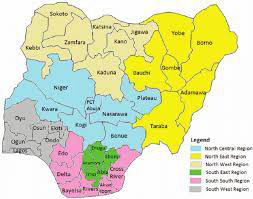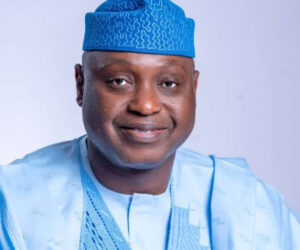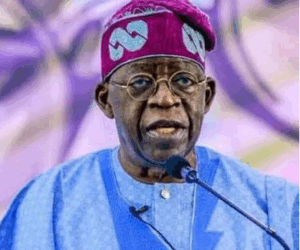3
UMEZURIKE EMEKA
Nigeria’s recent nomination of a lawyer to lead the Ministry of Science, Technology and Innovation has generated widespread public debate, and rightly so. As we stand in an era defined by artificial intelligence, robotics, space science, genomic medicine, and digital transformation, our national leadership continues to treat science and innovation as peripheral political conveniences. Instead of empowering seasoned technocrats who understand laboratory realities, industrial technologies, research boot camps and innovation hubs as well as the research landscape, our leaders trivialize a key sector by appointing those without the background necessary to steer it. While the move may seem like routine political maneuvering, it symbolizes a deeper dysfunction. Nigeria ranks 109th out of 132 countries in the 2024 Global Innovation Index, a position that reflects decades of neglect and poor strategic planning. This appointment does not just risk maintaining the status quo it threatens to push the country further behind its rapidly advancing peers.
The Ministry of Science and Technology is not merely a control room for paperwork or public representation. It is the engine room of Nigeria’s developmental future responsible for guiding research institutions, enabling technological transformation in industries, advancing STEM education, and ensuring Nigeria’s active participation in global scientific progress.
Experts have asserted that: “Science policy cannot be effectively developed by those who do not understand its language, its urgency, or its consequences.”To supervise complex scientific fields such as renewable energy systems, data security, disease surveillance, space research, and biotechnology, a leader must come equipped with an internal understanding of how science operates. Without this crucial foundation, policy may become reactionary, investment misplaced, and innovation directionless.
For decades, Nigeria’s brightest innovators have been forced to look abroad for recognition and opportunity. According to some reports over 15,000 doctors have migrated in just five years and countless scientists, engineers, software developers, and researchers follow similar paths. Meanwhile, unemployment among STEM graduates continues to rise, even though the country desperately needs more scientific professionals. The message sent by appointing outsiders to key technical roles is loud and disheartening: scientific professionals are good enough to study, invent, and innovate but not competent enough to lead. Reverse roles and imagine what it will feel like for a Professor of Microbiology to be appointed as the Minister of Justice and Attorney General of the Federation. Experts have continued to warn that it is not possible to build a scientific economy by sidelining scientists. When leadership becomes guesswork, progress becomes accidental. Political reasoning, permutations and posturing has long undermined critical institutions in Nigeria. Yet, in a ministry that should define our technological future, misplacement of leadership is not just a political error but a national risk.
Across the world, nations that take science seriously are investing strategically and appointing qualified experts to guide that investment. South Korea devotes 4.8% of its GDP to research and development, boasting a thriving tech-driven economy. South Africa, through technocrat-led policy-making, is advancing rapidly in biotechnology and digital innovation. Rwanda, once a war-torn nation, is now hosting global technology hubs and attracting multinational investments. Nigeria, on the other hand, invests less than 0.2% of GDP in R&D. Our laboratories in various government universities remain under-equipped, our researchers underfunded, and our institutions underutilized. How can a leader who must first learn science concepts, theories and laws at the cabinet table be expected to solve the problems that lifelong scientists struggle daily to overcome?
The future belongs to nations that recognize science as a powerful instrument for social and economic transformation. A strong and well-led science ministry has the potential to stimulate innovation-driven industries that can significantly reduce unemployment while positioning Nigeria as a competitive player in the global marketplace. Through advancements in biotechnology and local drug development, it can play a critical role in improving national healthcare outcomes and reducing dependence on foreign pharmaceutical imports.
In agriculture, scientific research can strengthen food security by enhancing crop yield, improving pest resistance, and developing sustainable farming technologies. At the same time, modern scientific investment can bolster national defense capabilities through improved cybersecurity measures and satellite-based intelligence, helping Nigeria respond more effectively to security threats.
Furthermore, a thriving scientific sector opens new export opportunities and economic pathways that can elevate Nigeria’s global standing, not just in raw materials but in high-value products such as software, medical technologies, and advanced engineering solutions.
Nigeria cannot afford leadership that views science merely as an administrative portfolio or a ceremonial function of government. What the country urgently requires are visionaries who think beyond political cycles and who understand the long-term rewards of discovery, innovation, and technological self-reliance.
Nigeria has brilliant physicists, engineers, microbiologists, computer scientists, AI researchers, and space technologists, many globally recognized. Yet they are rarely found in leadership positions where their expertise can influence national direction. It is unacceptable that ministries responsible for scientific progress are handed to individuals with little or no experience in the field. The result is predictable: policies lack depth, innovation lacks direction, and Nigeria continues to play catch-up while others race ahead. Science is not entertainment. It is not a ceremonial post. It requires a captain who has sailed the waters not one who needs to learn what the compass does.
The future will not wait for Nigeria to get its priorities right. Leadership decisions made today will shape whether we become a knowledge economy or remain dependent on imported innovation. If Nigeria seeks to transform into a technologically competitive nation, we must start by putting the right minds in the right roles. Science deserves scientists. Innovation deserves innovators. Nigeria deserves better.
Dr. Umezurike is a Medical Microbiologist, researcher, and lecturer at Lead City University, Ibadan








